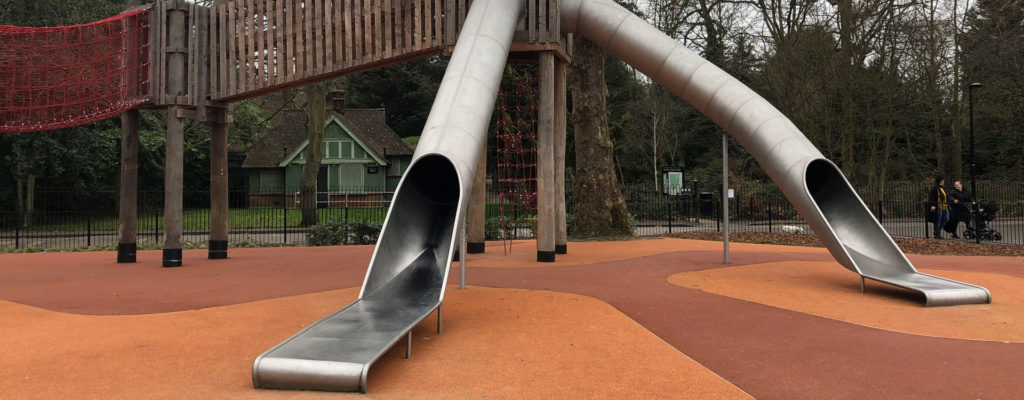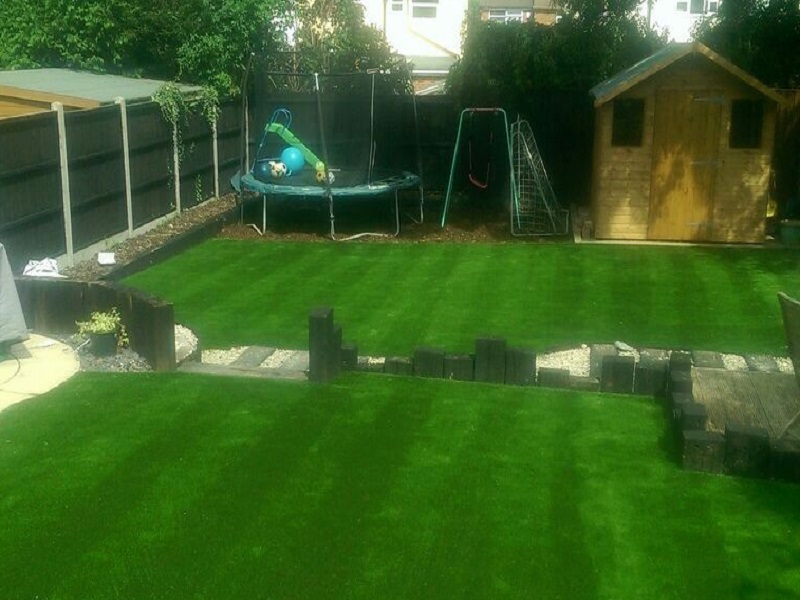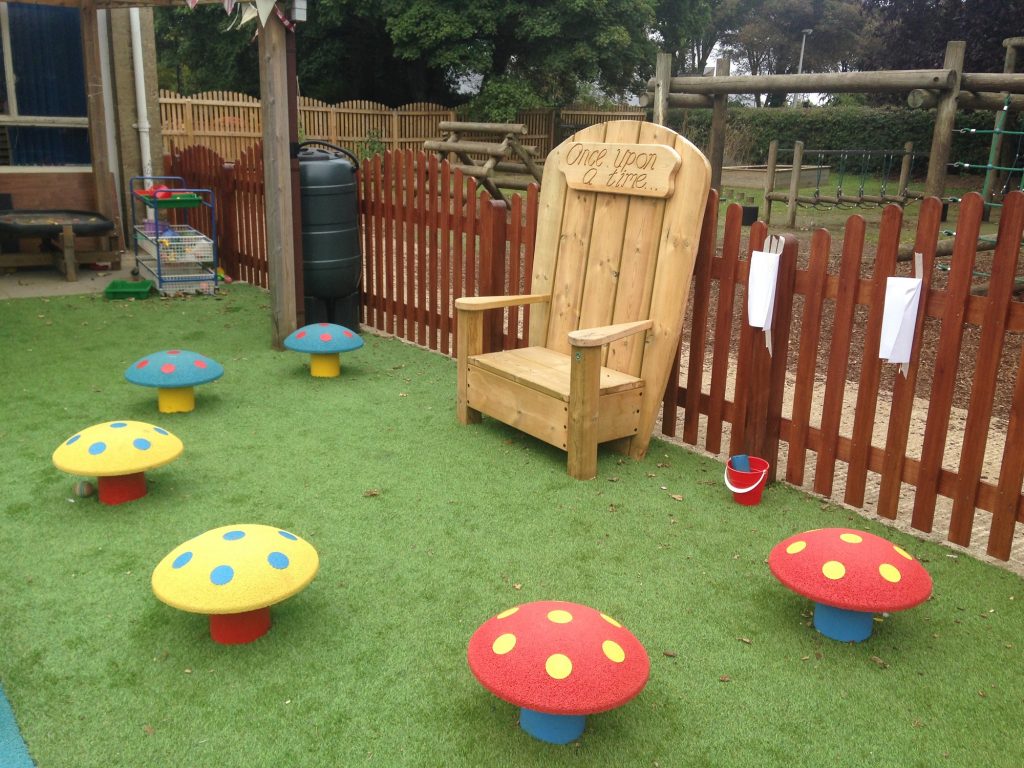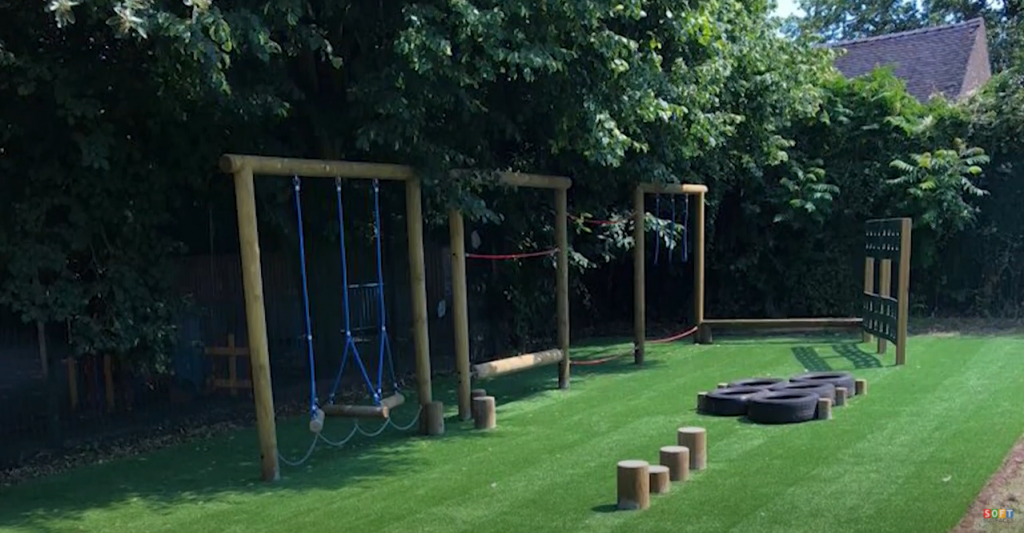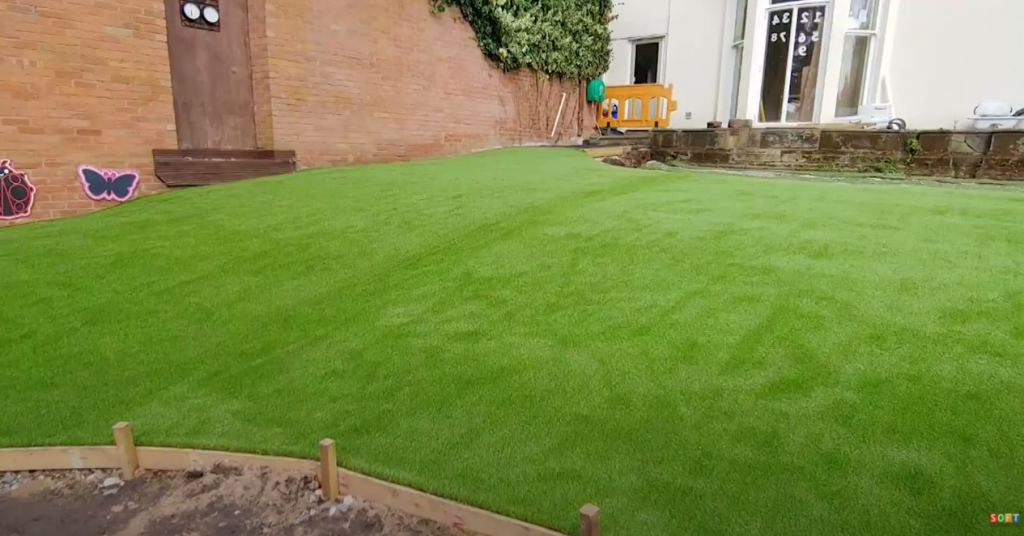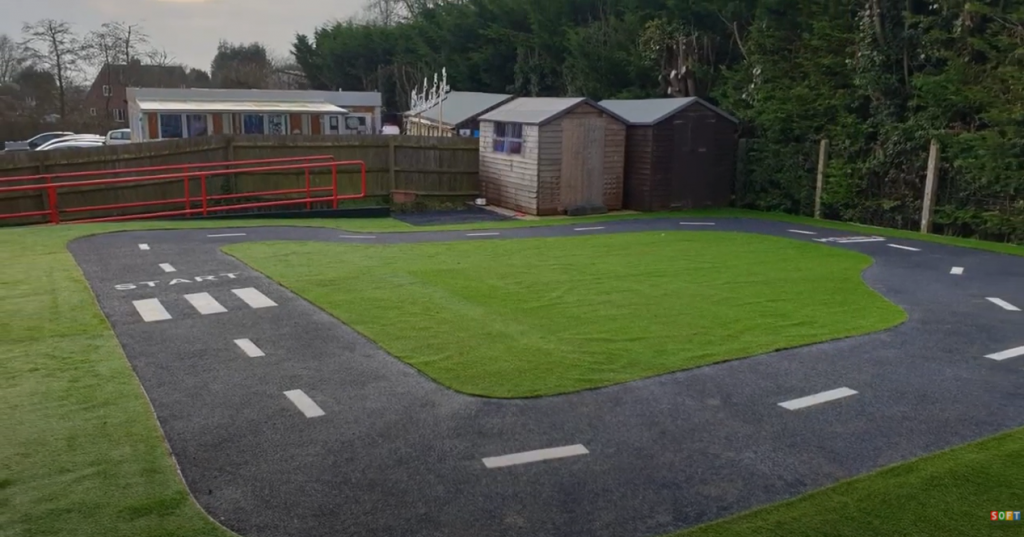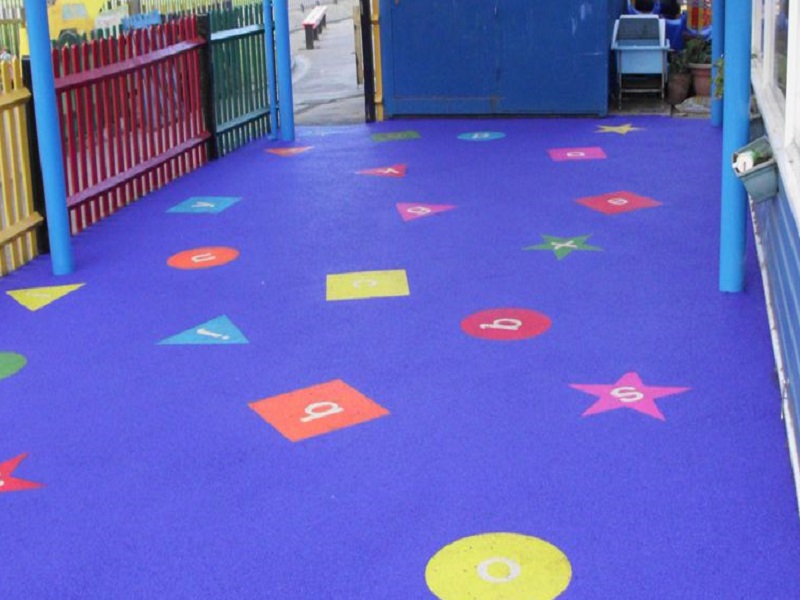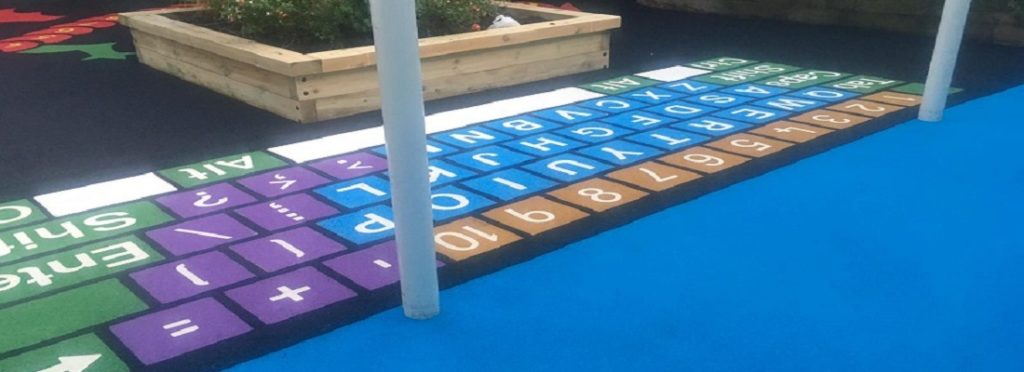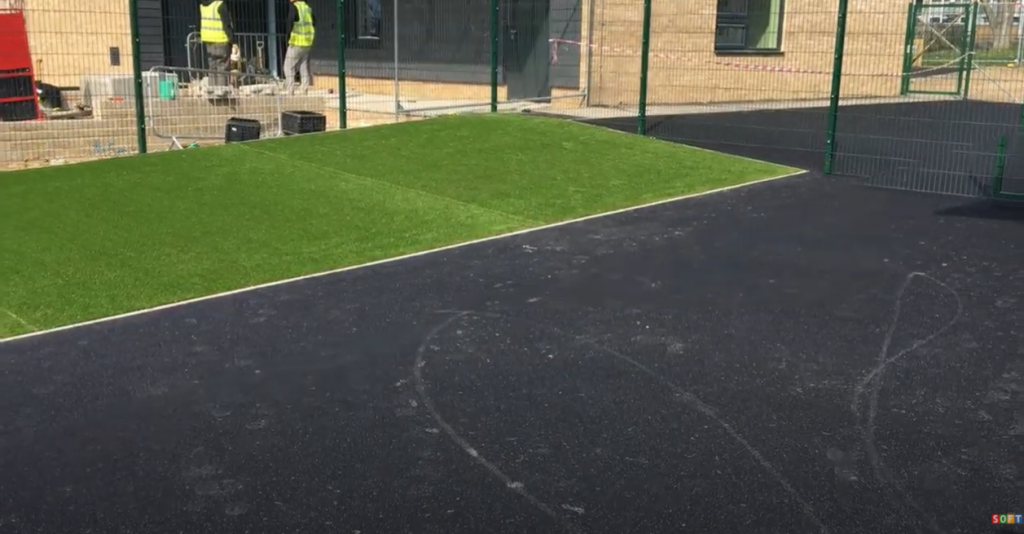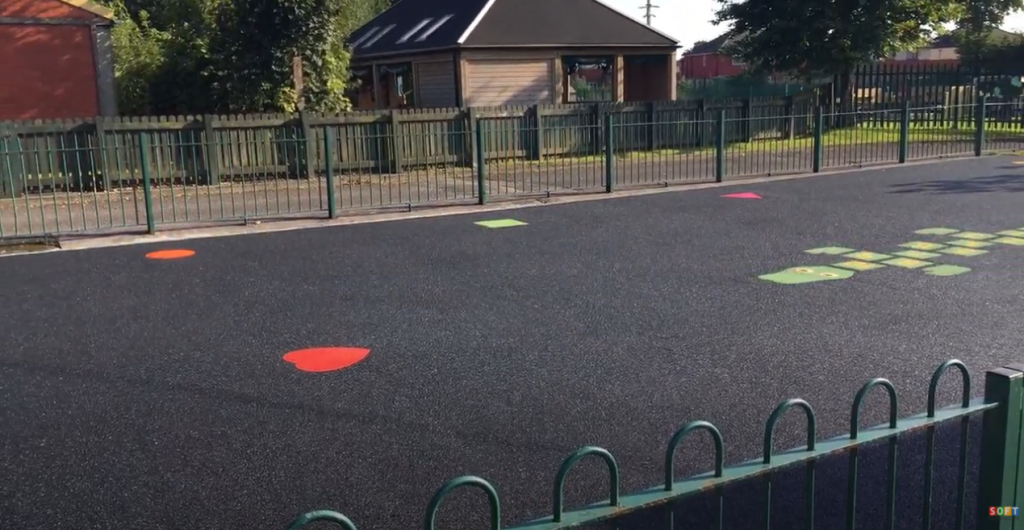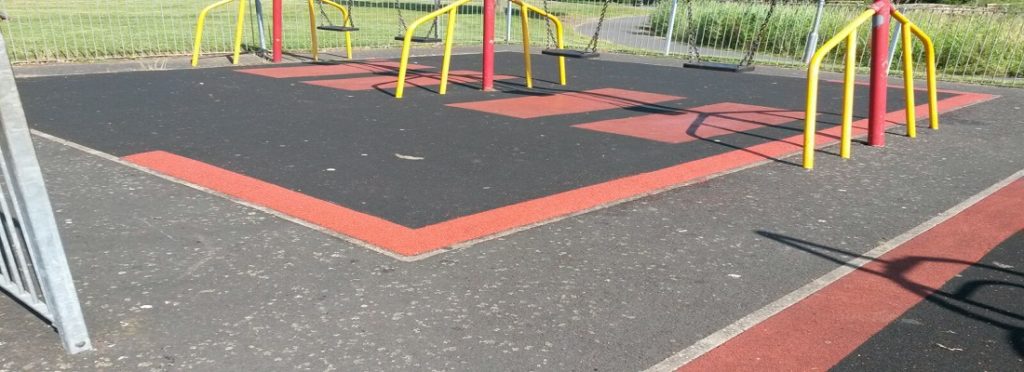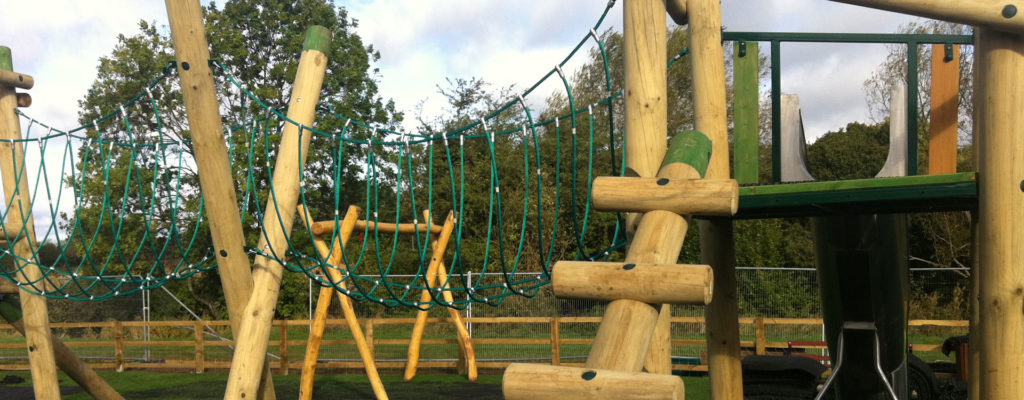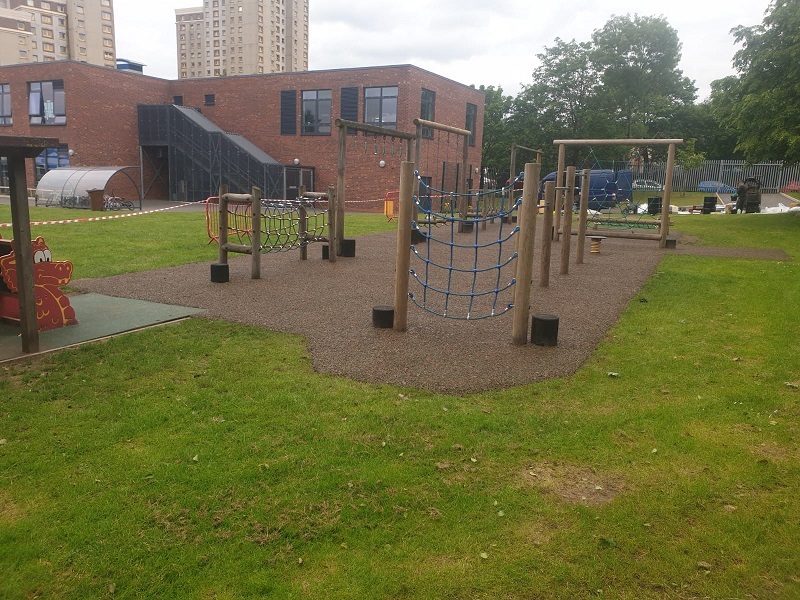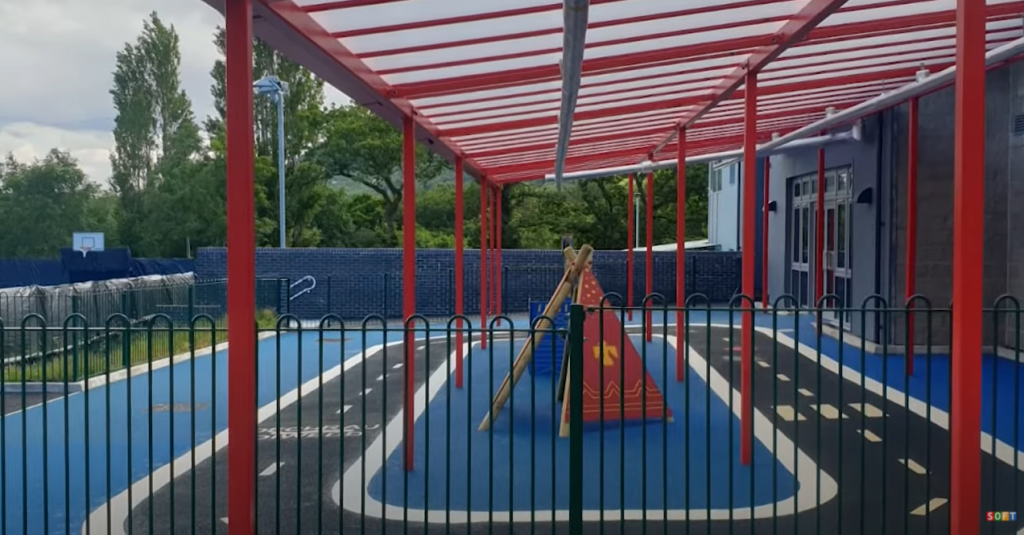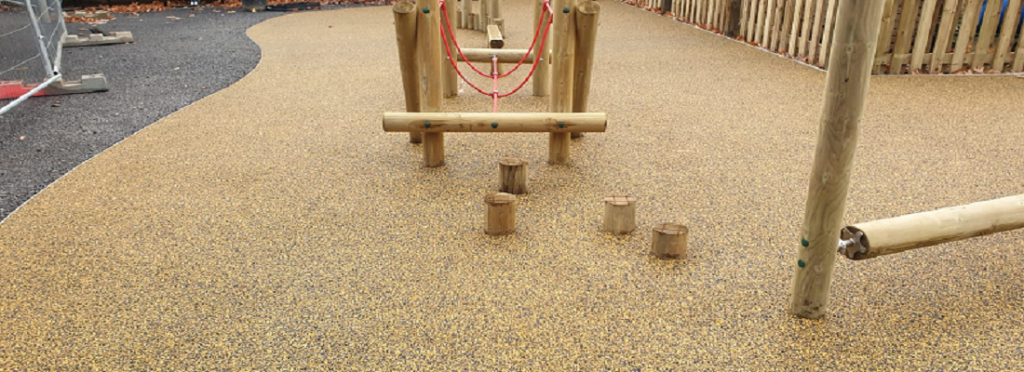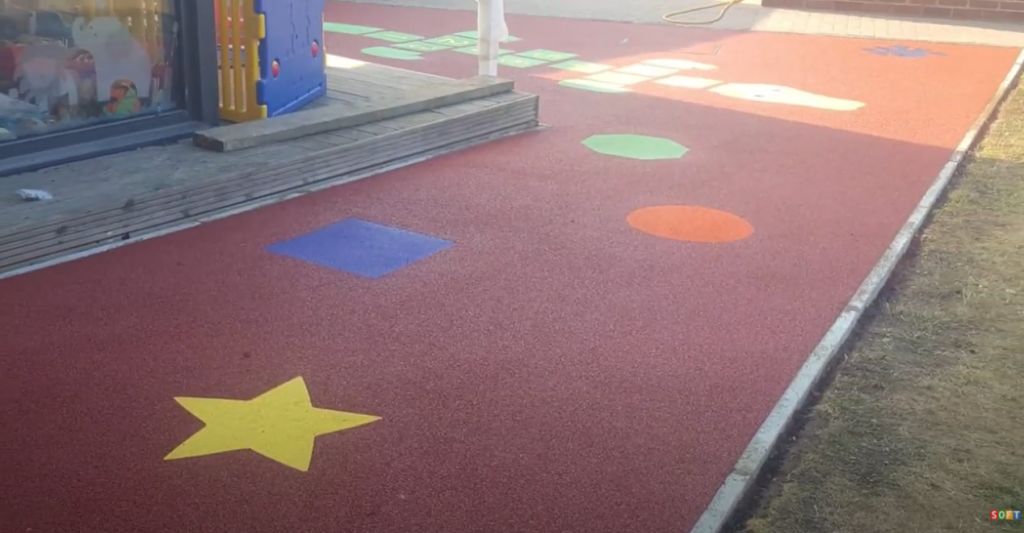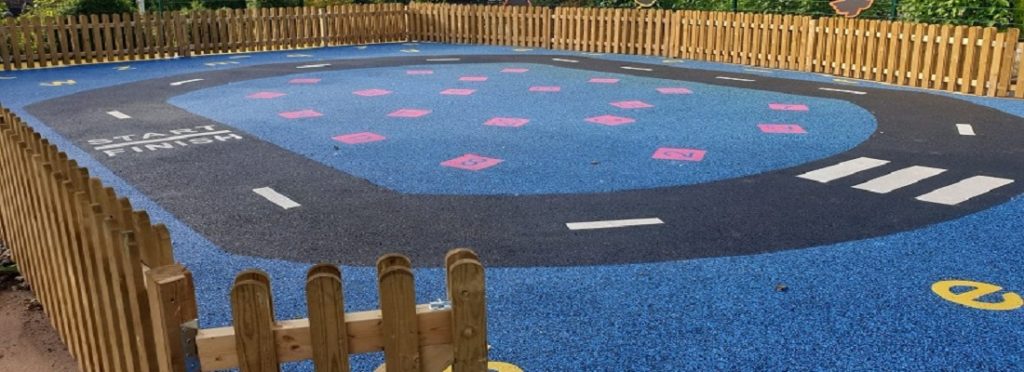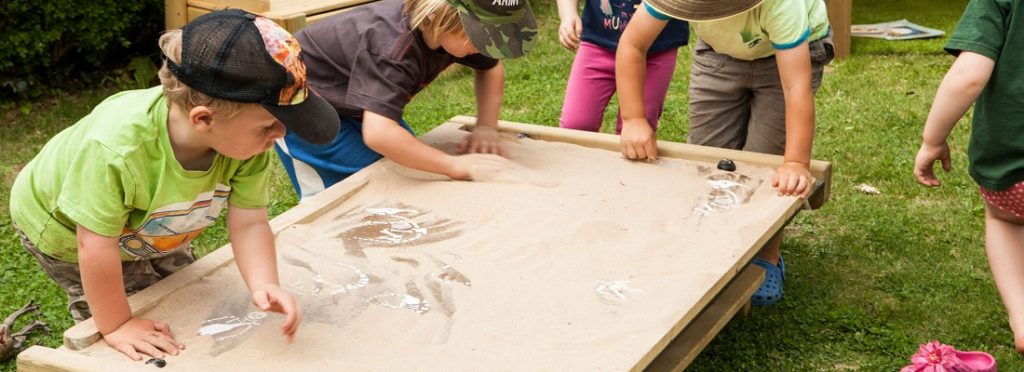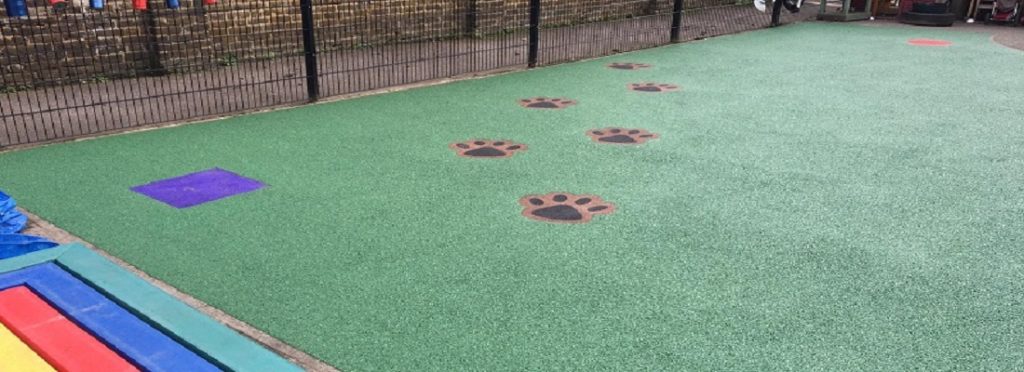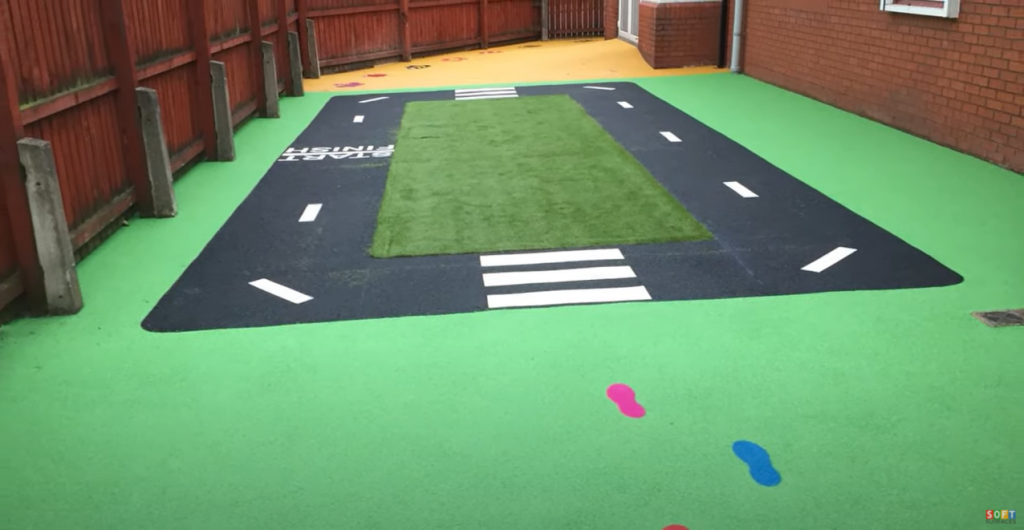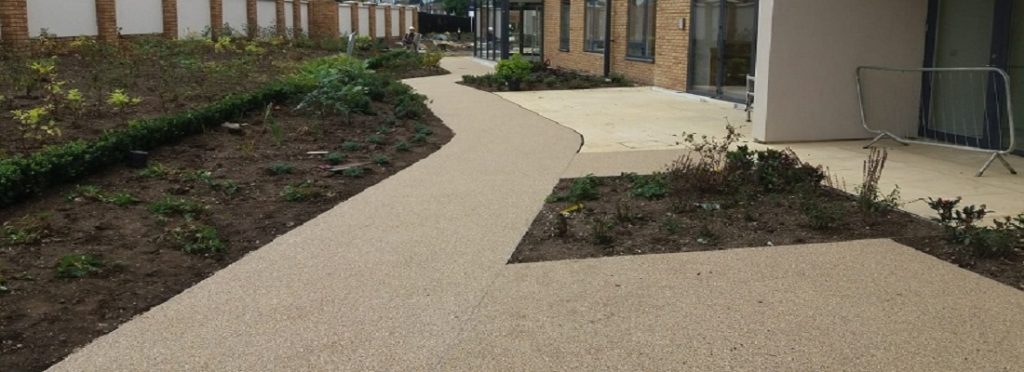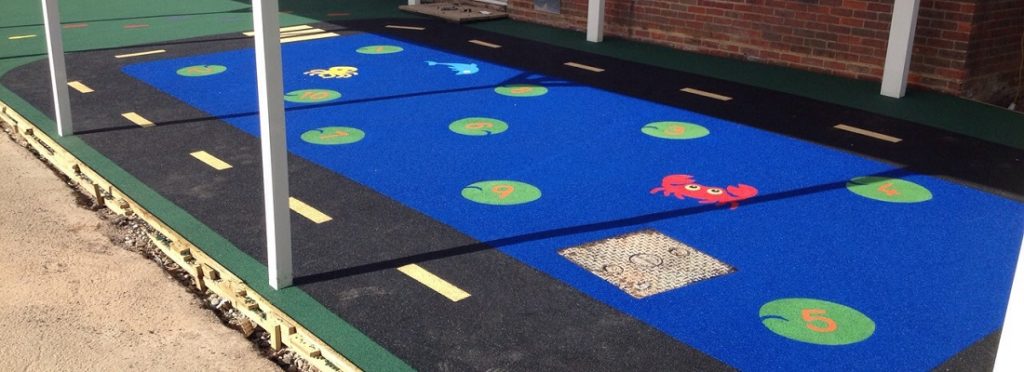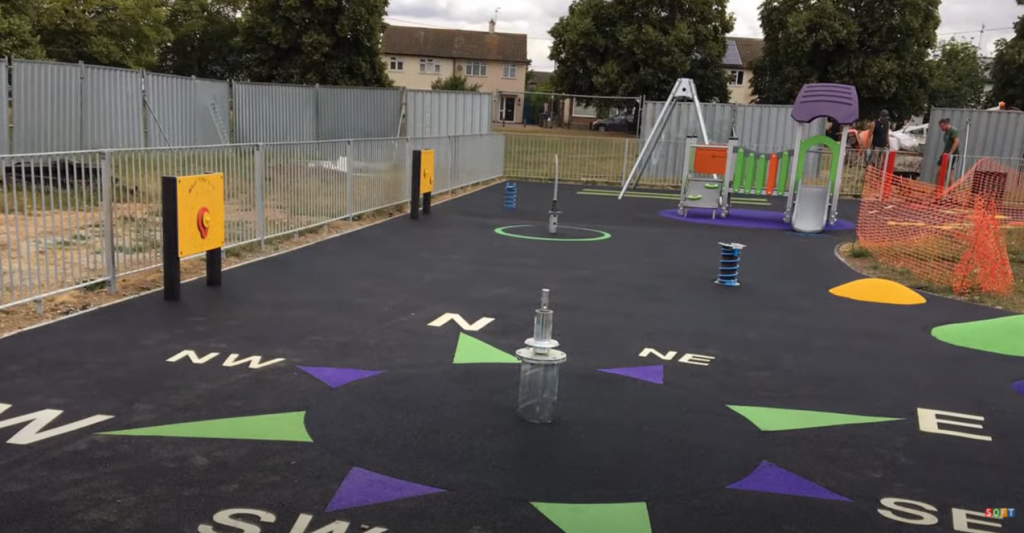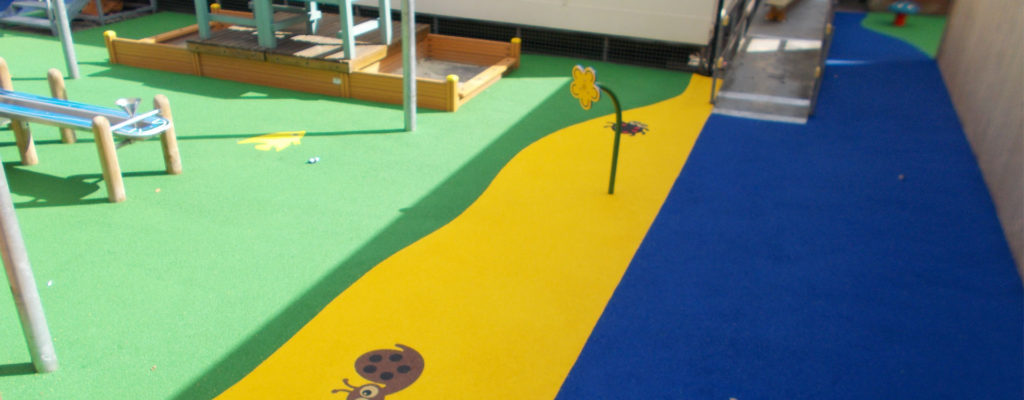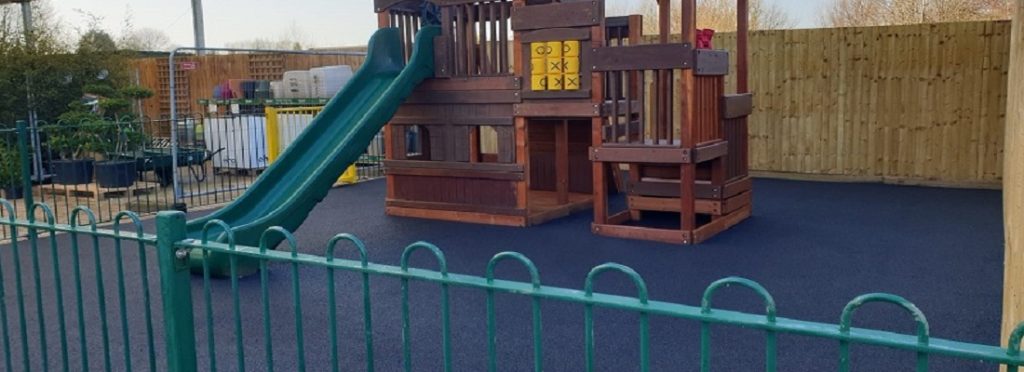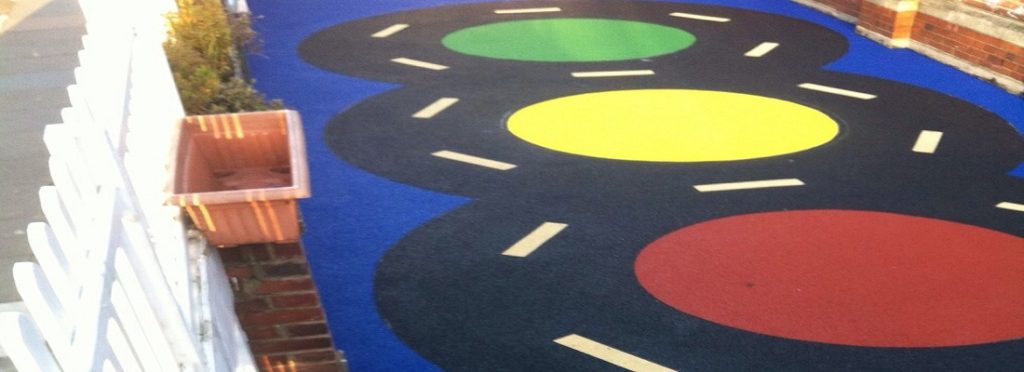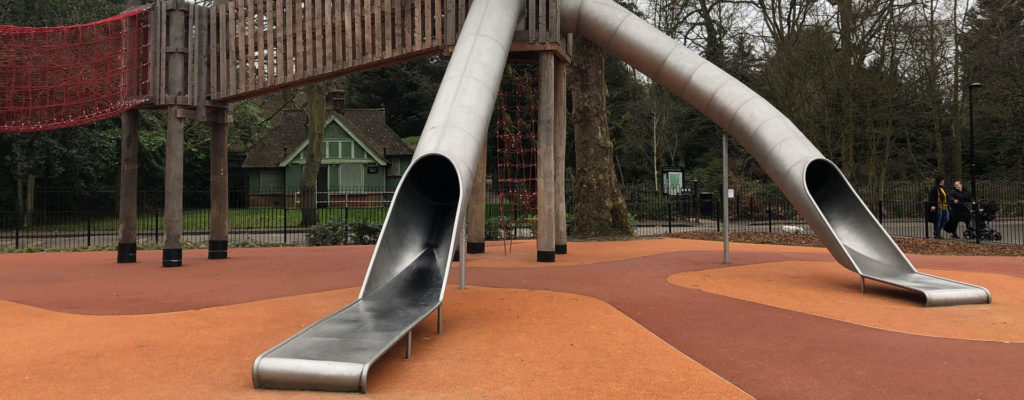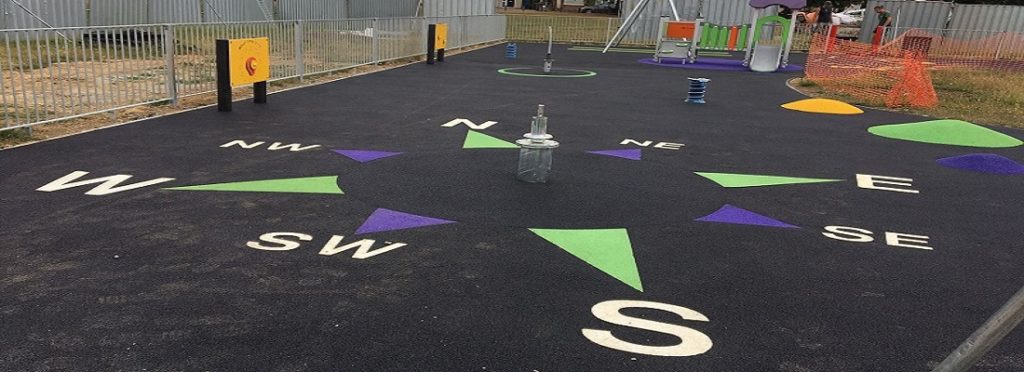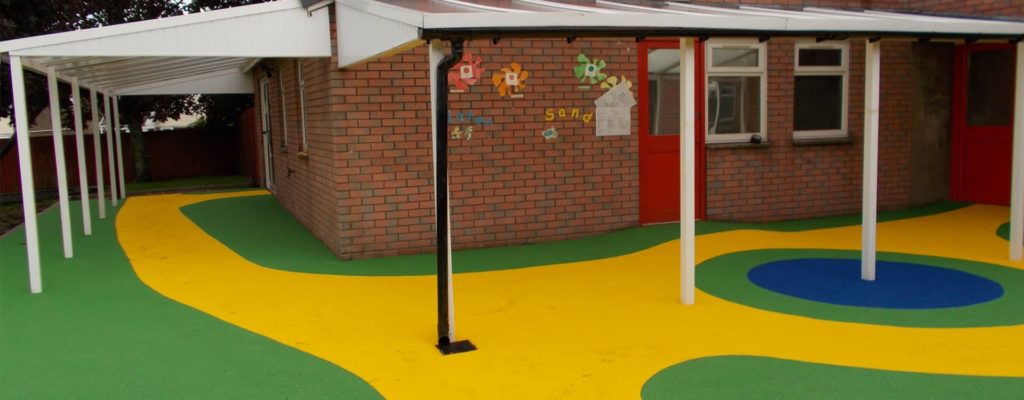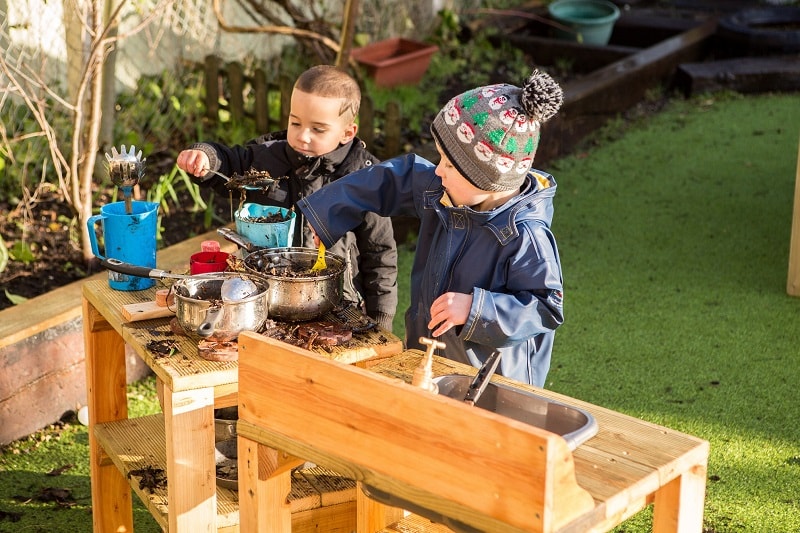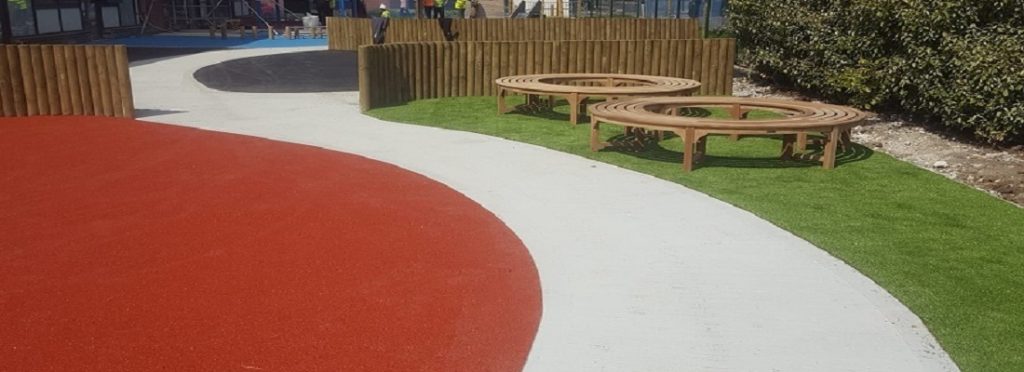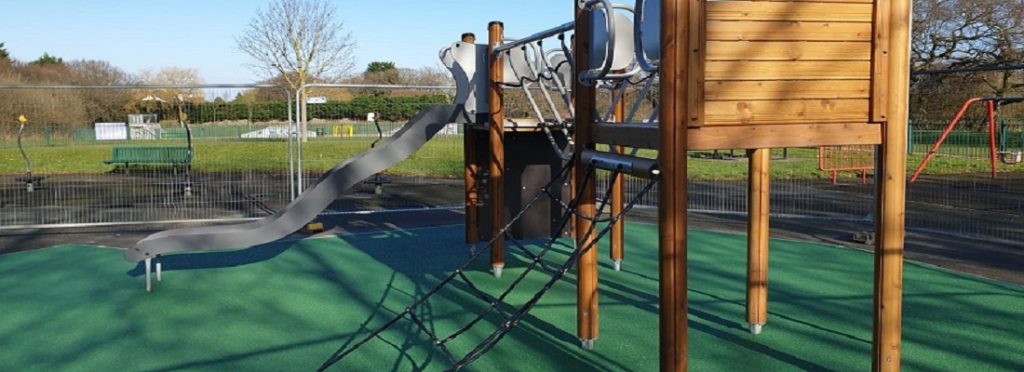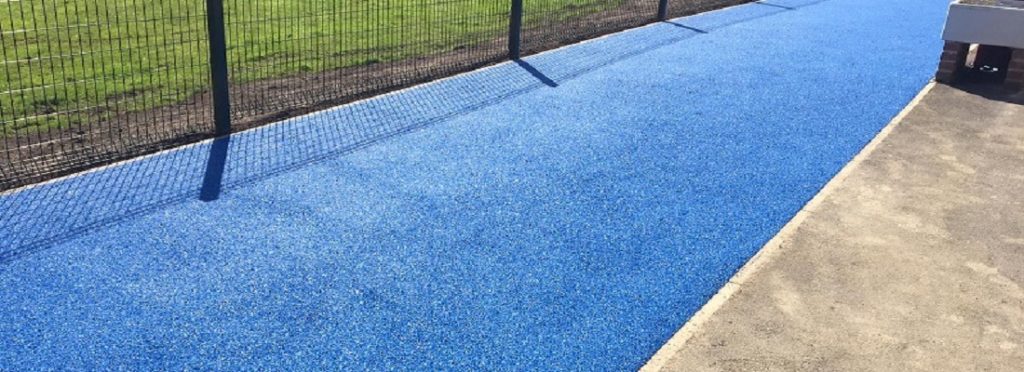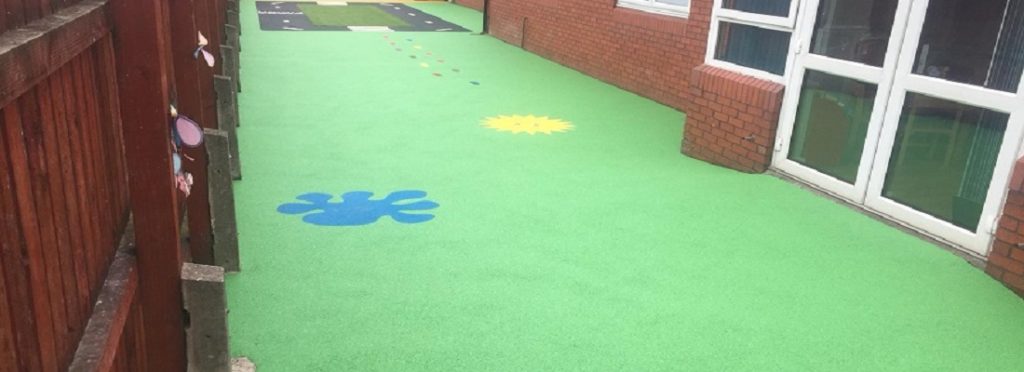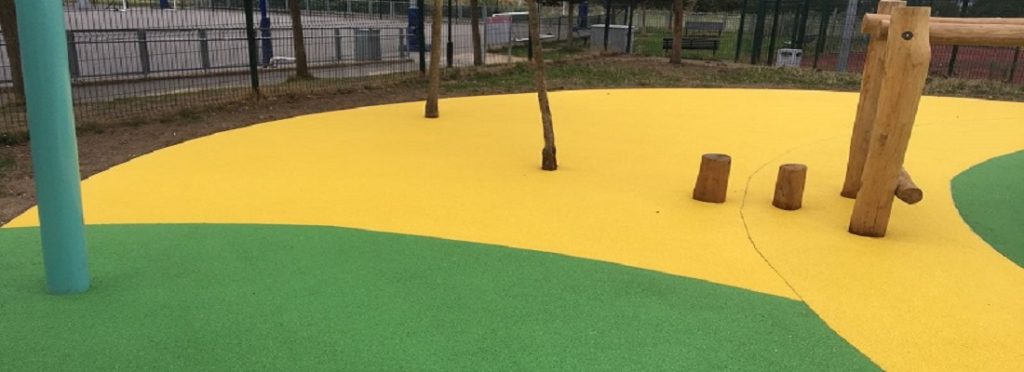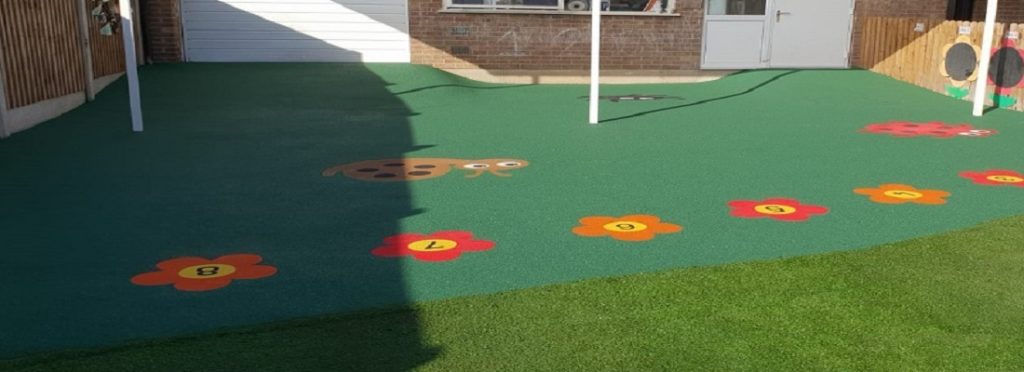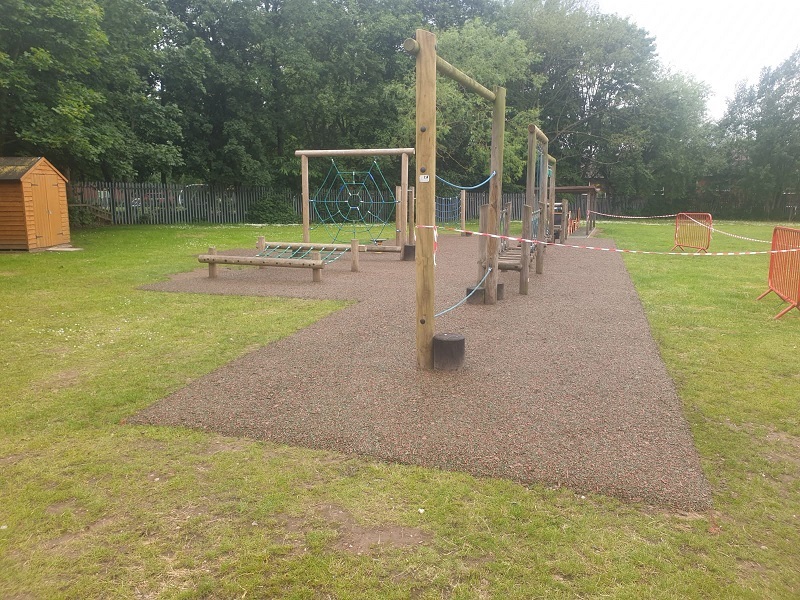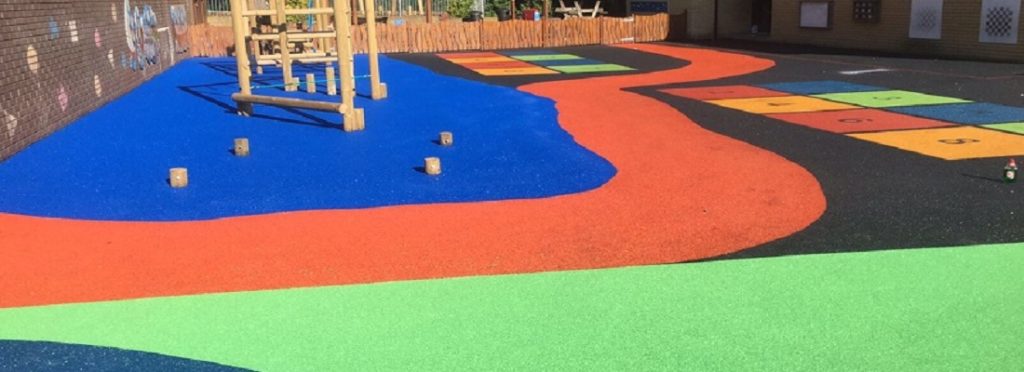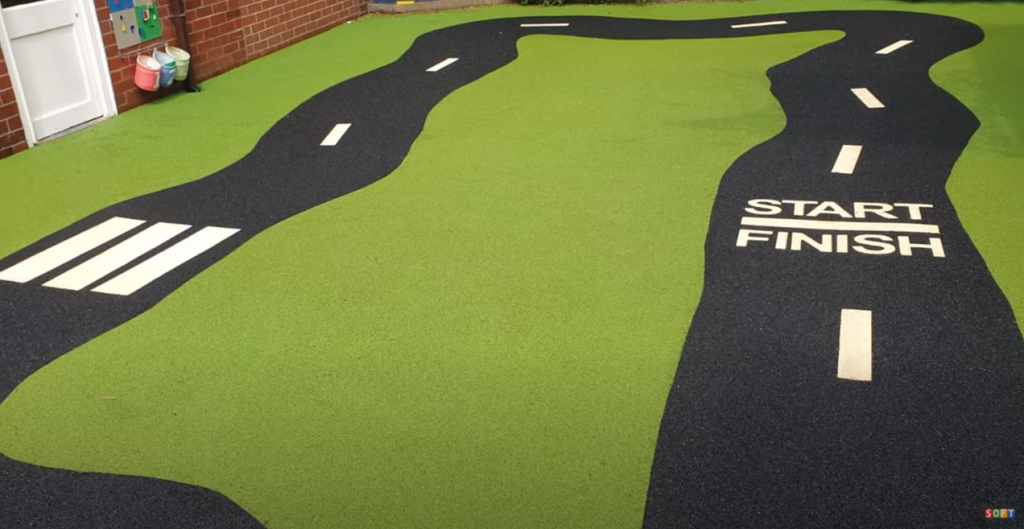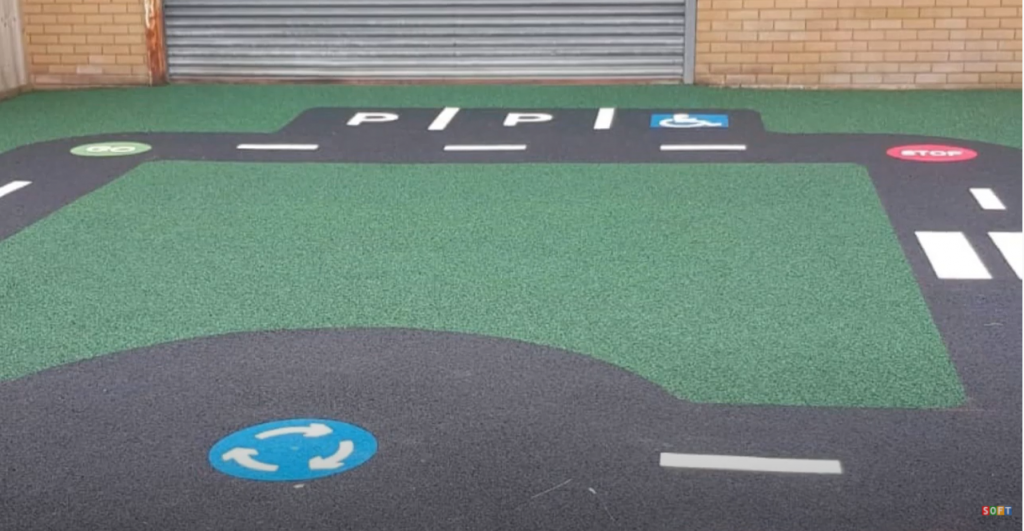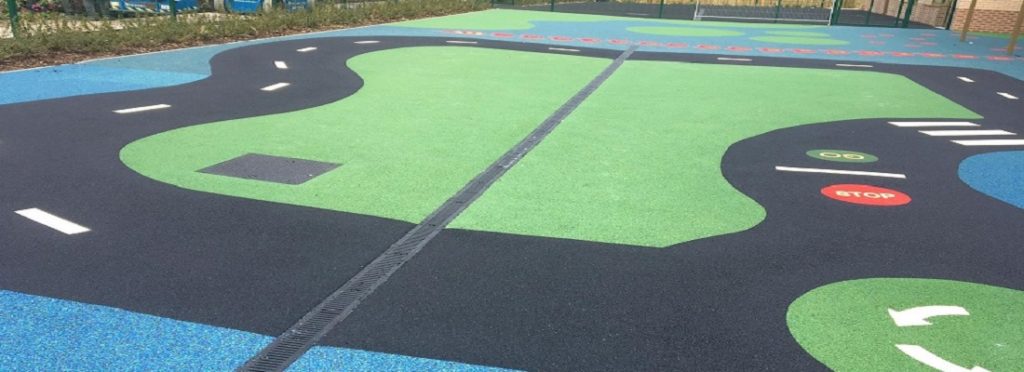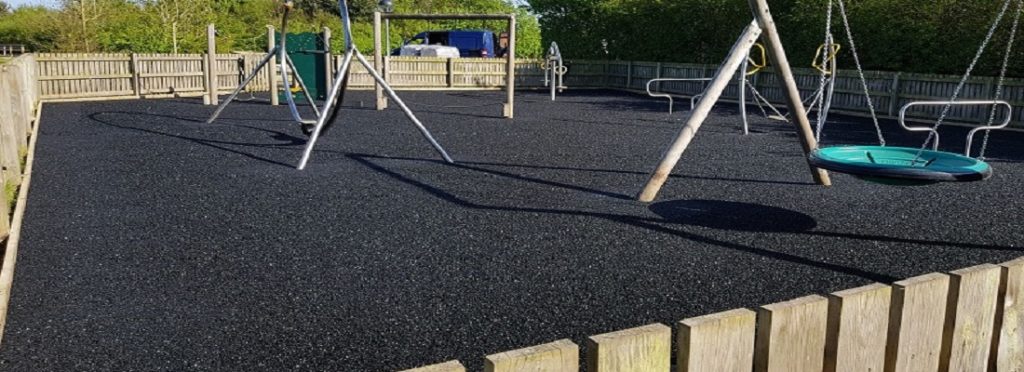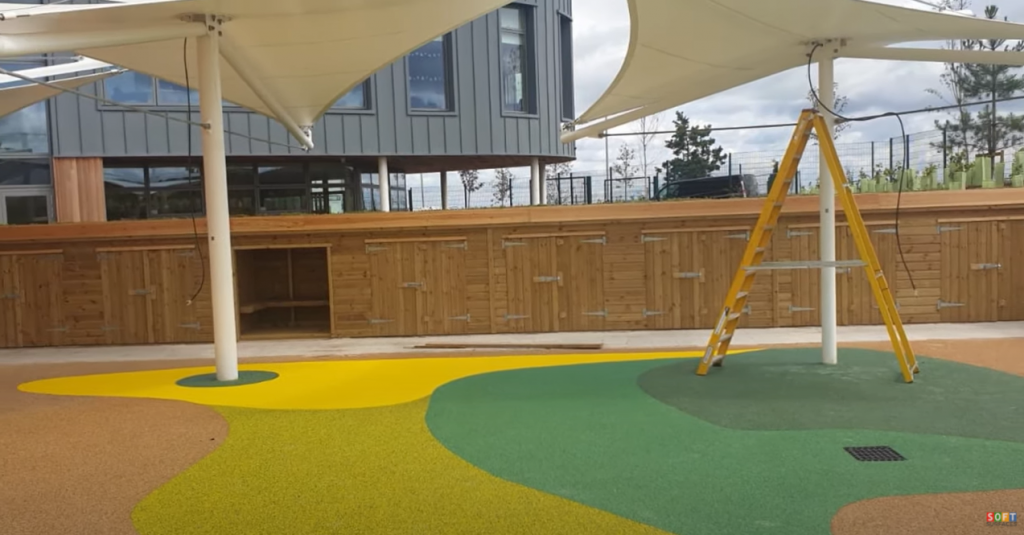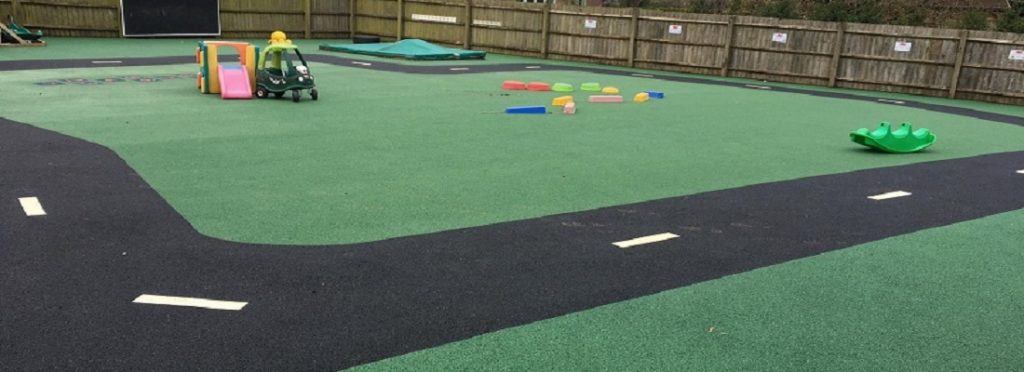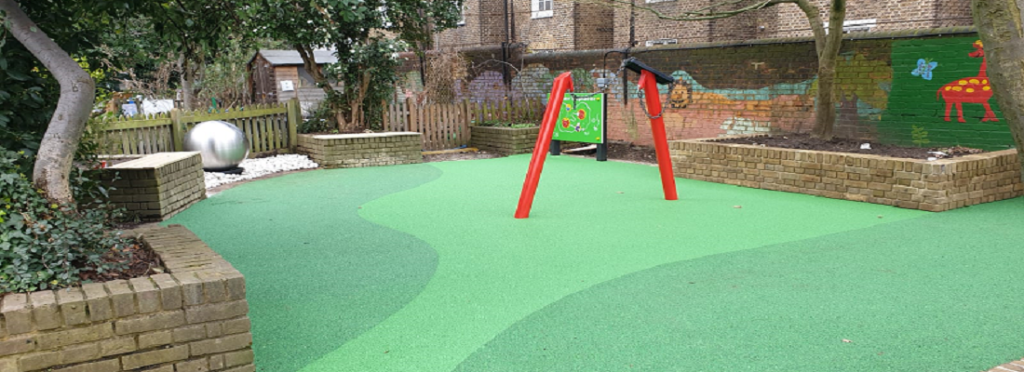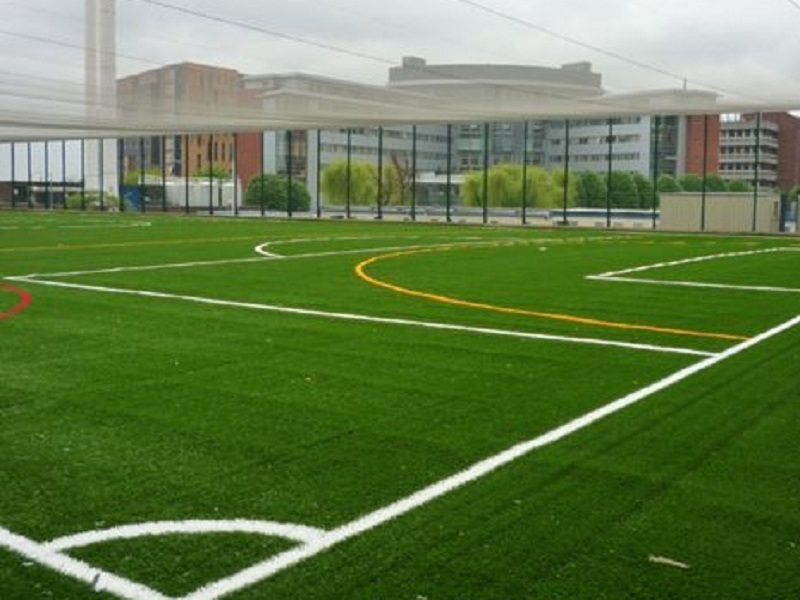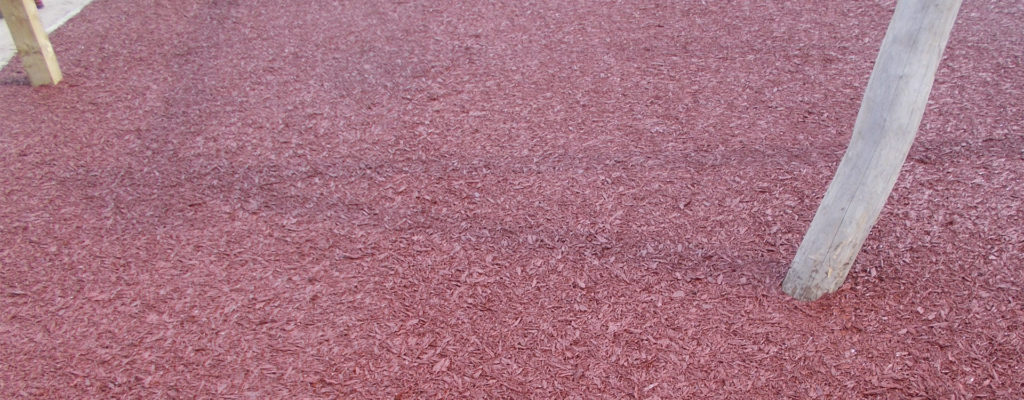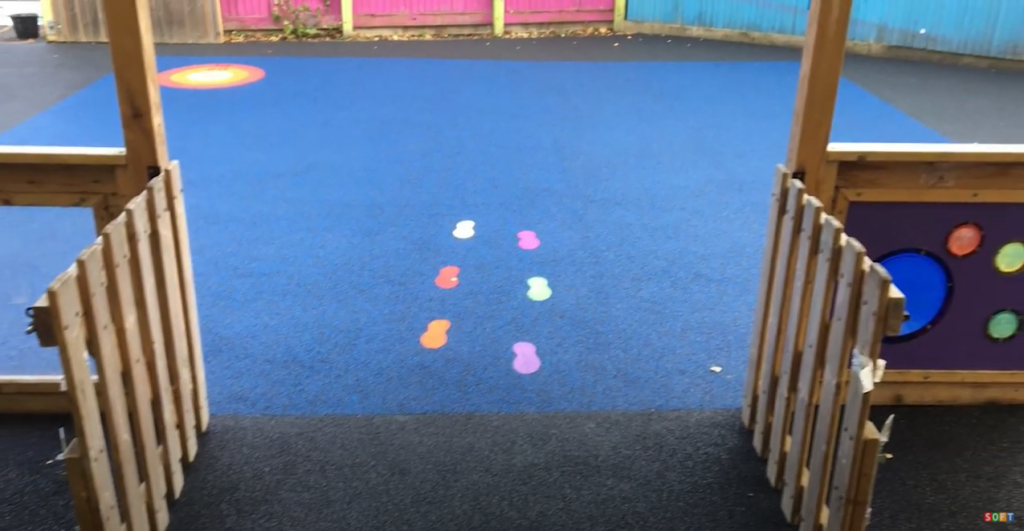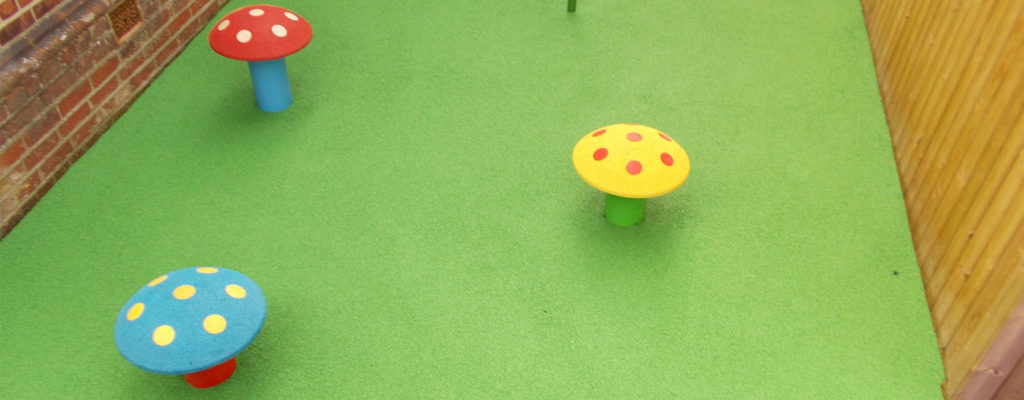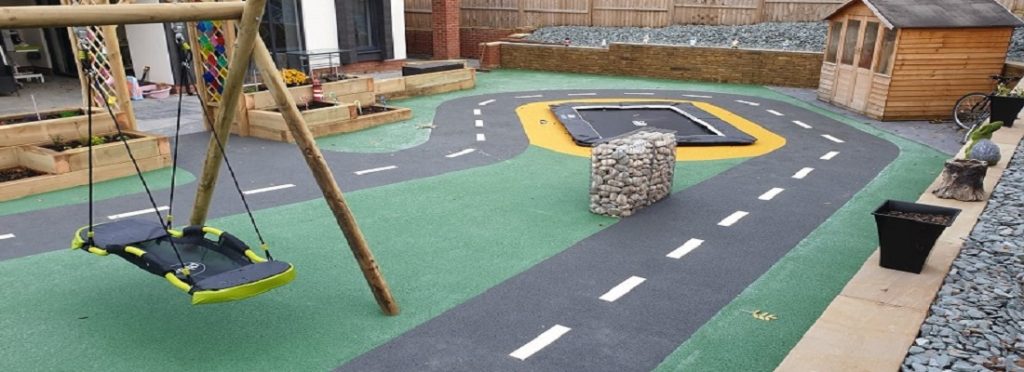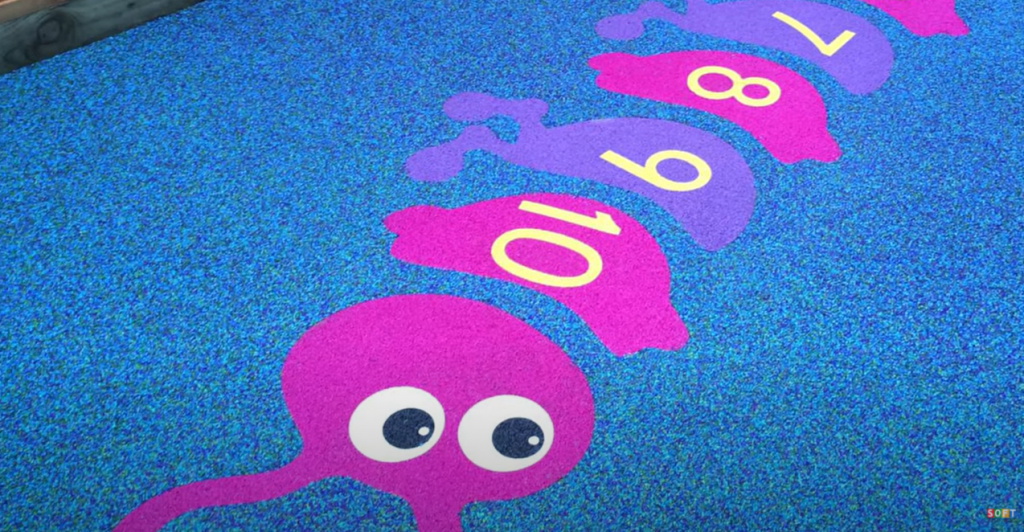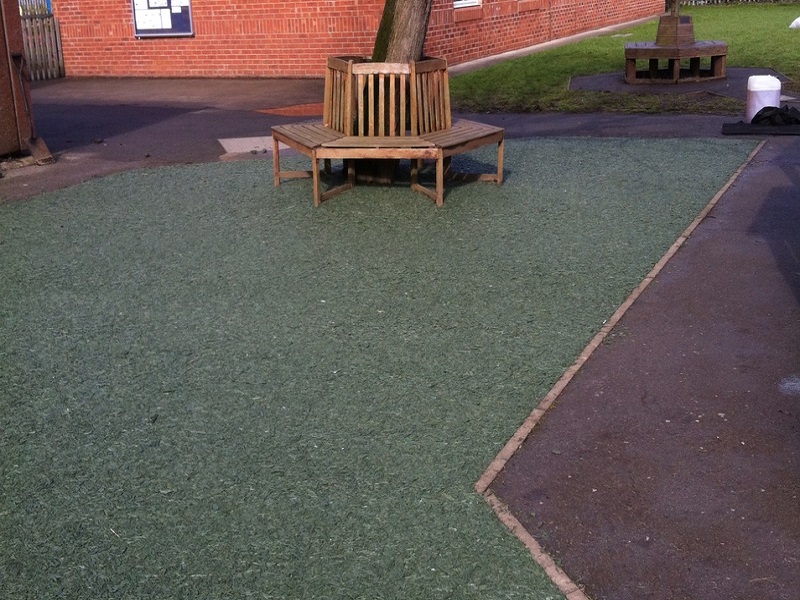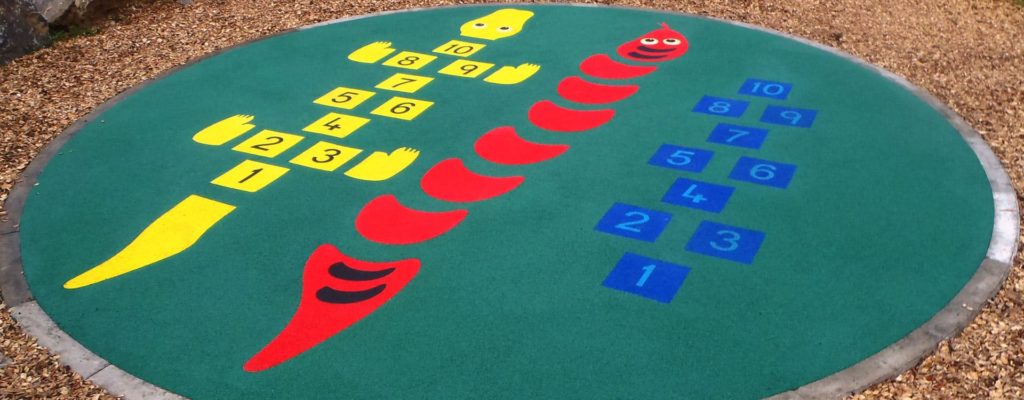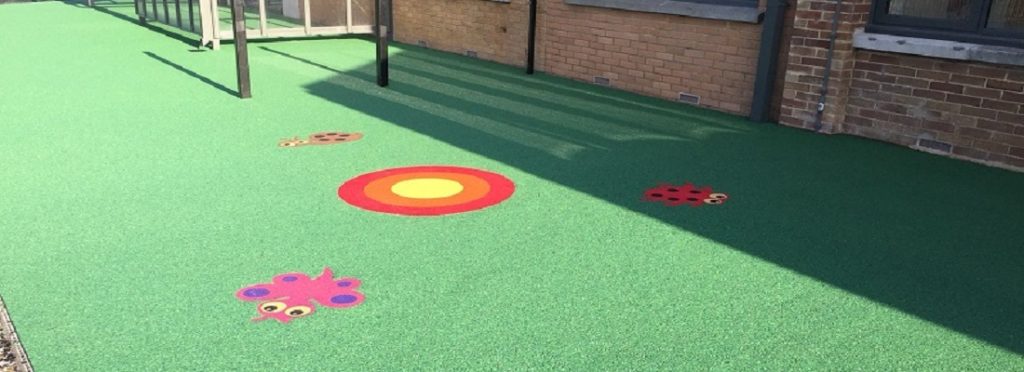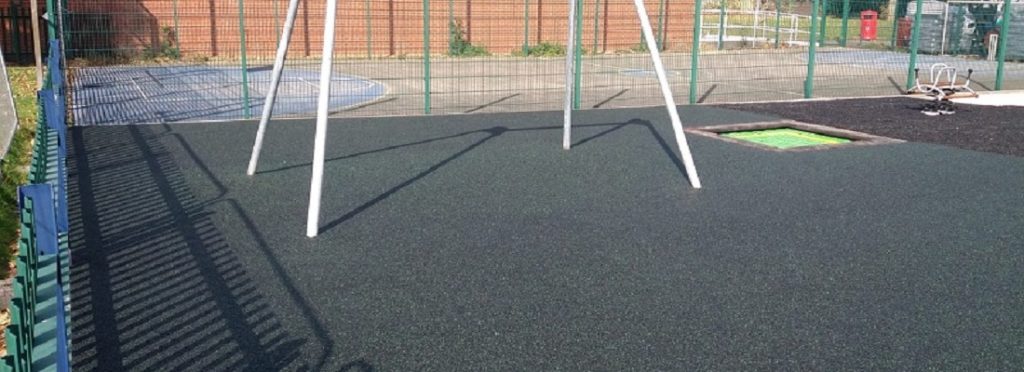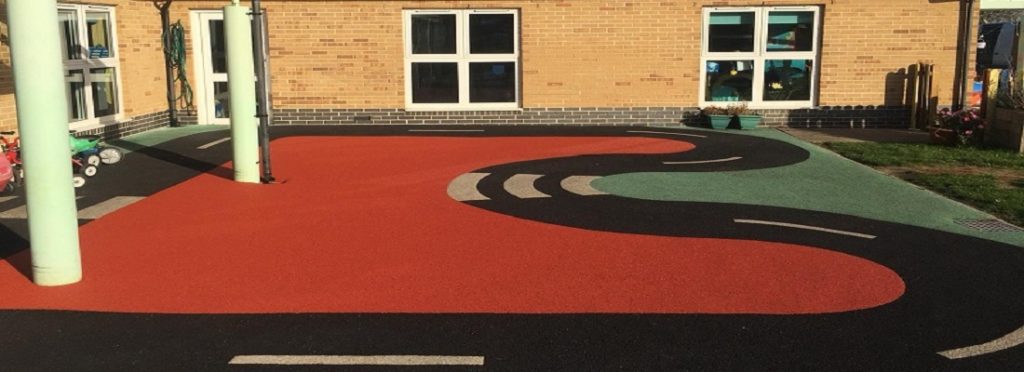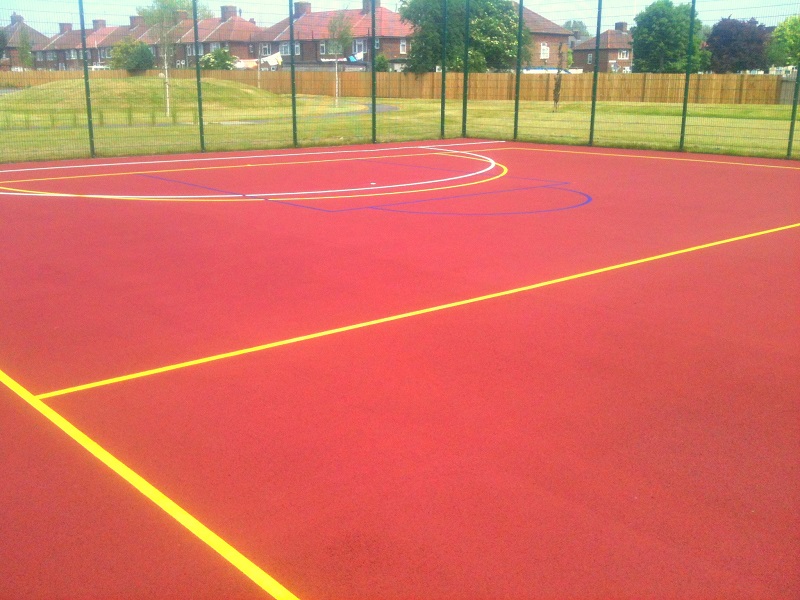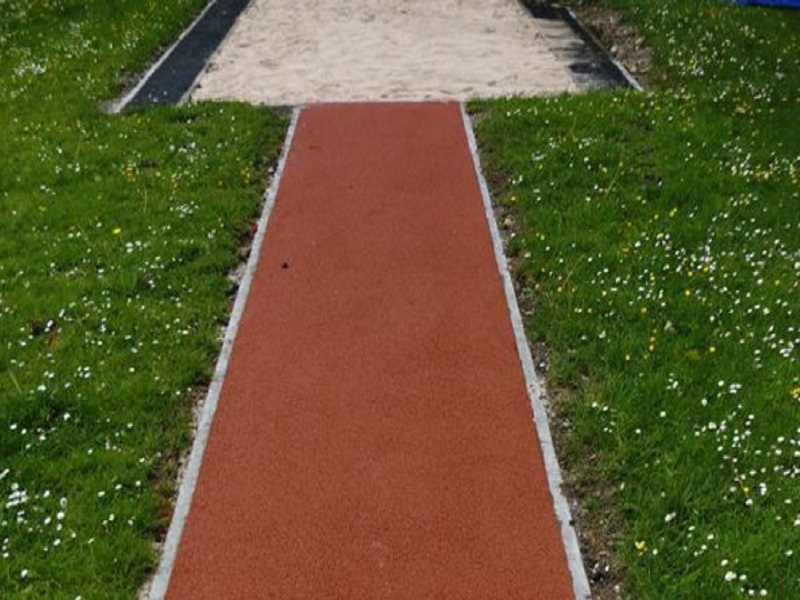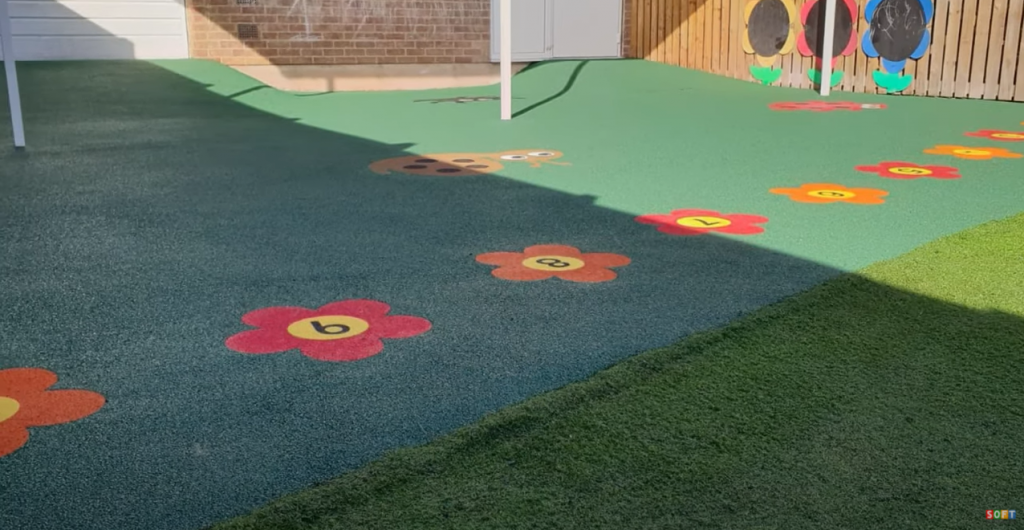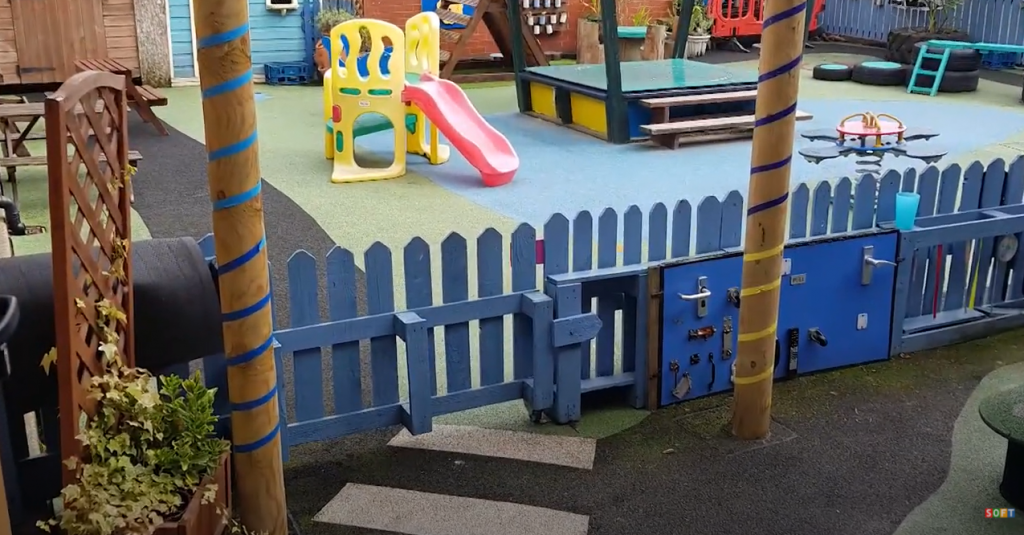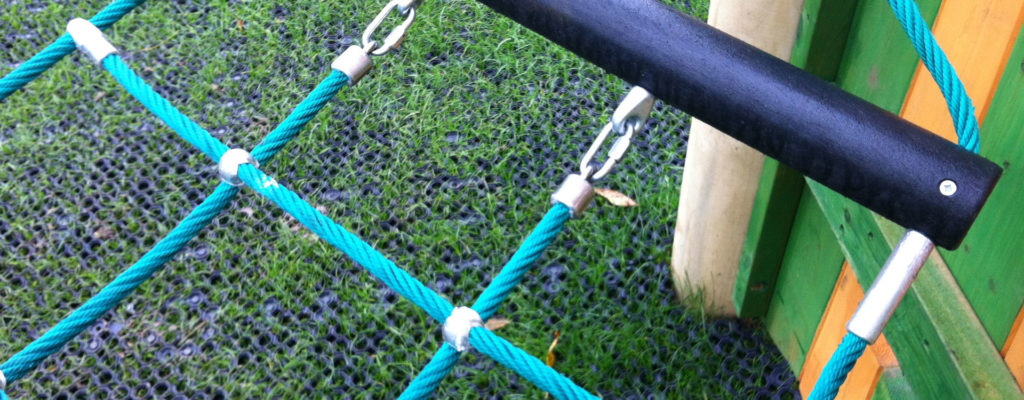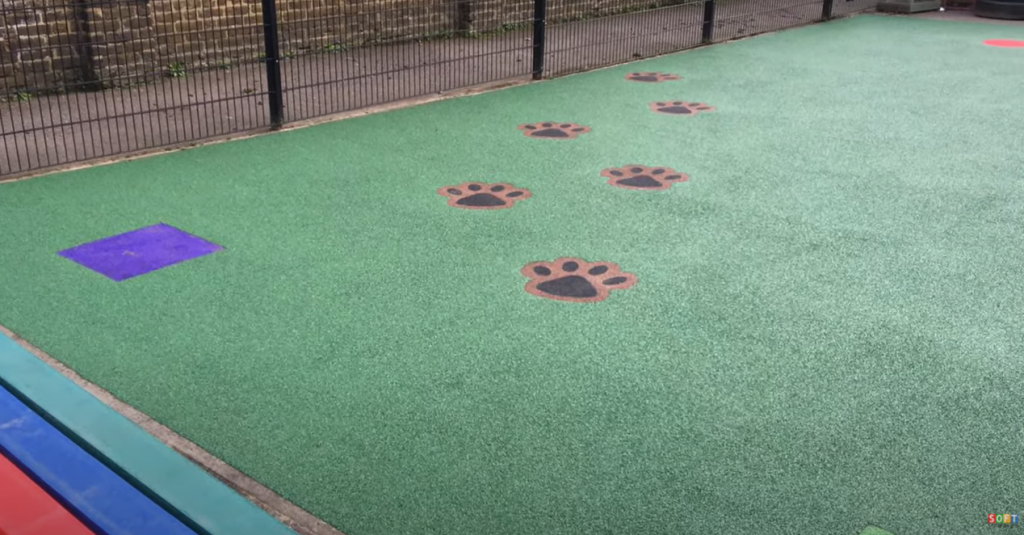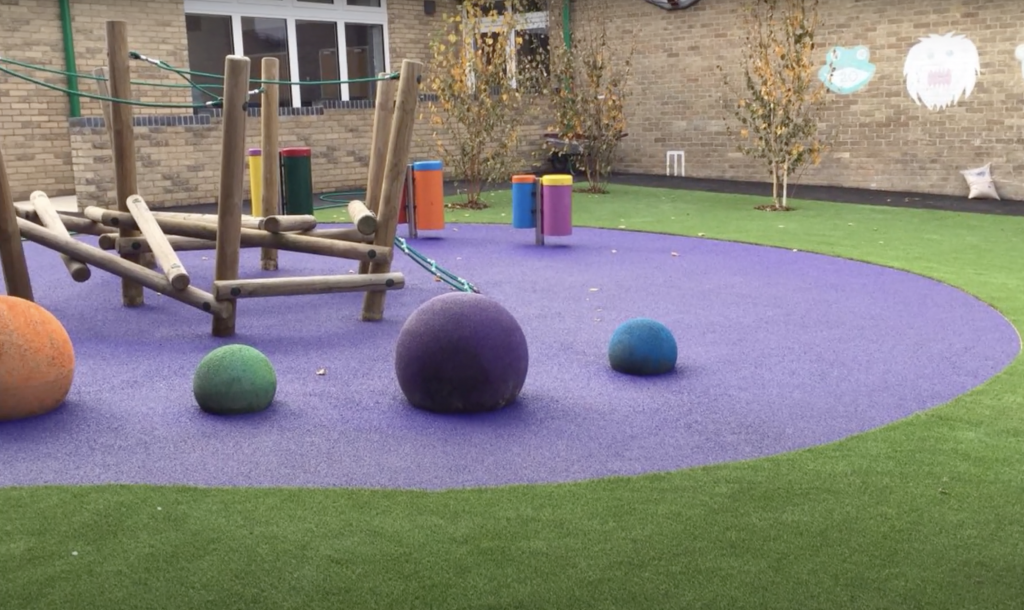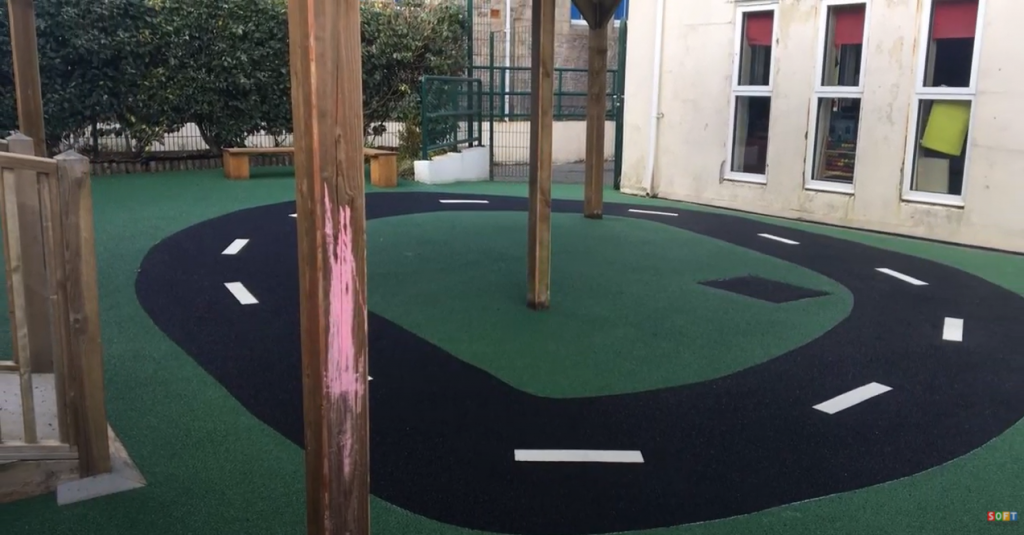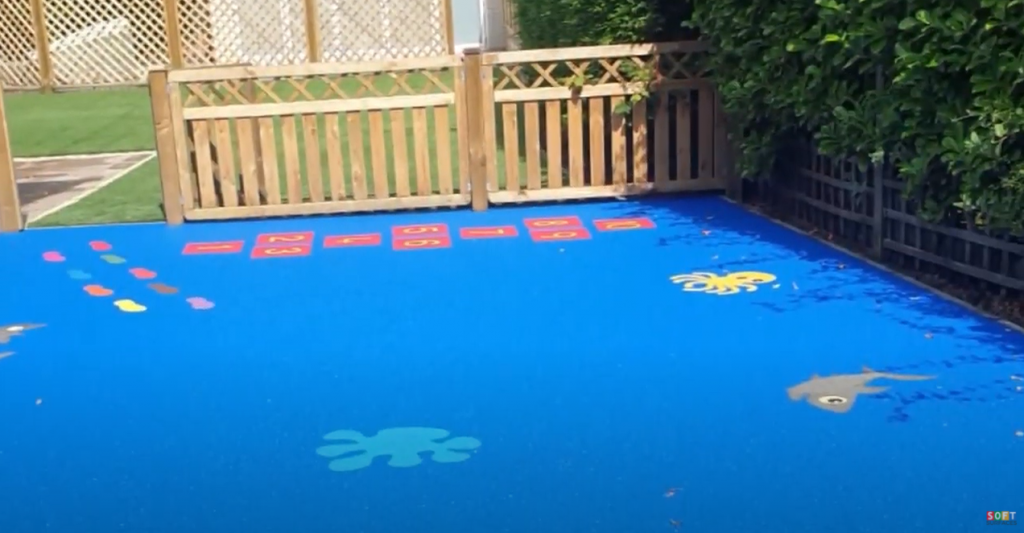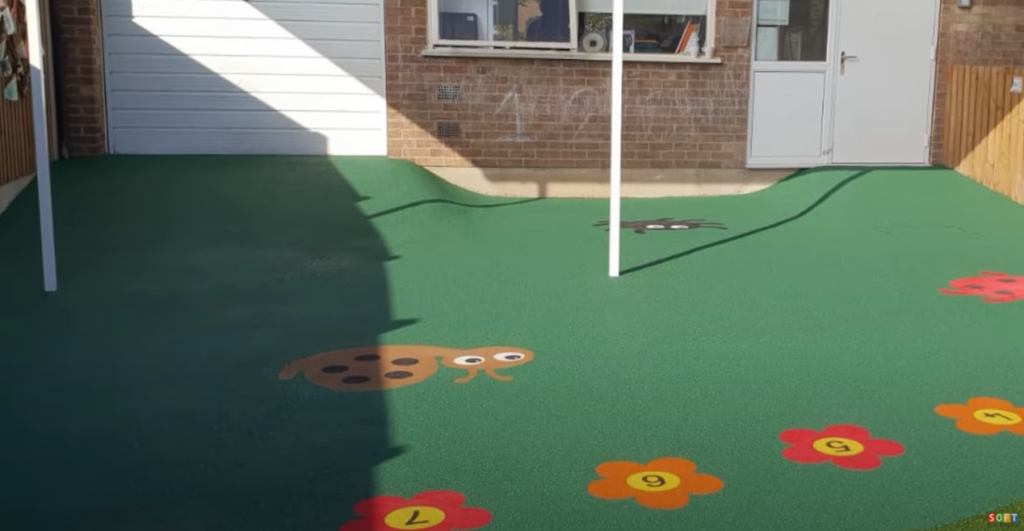
During nursery and primary school, speech is an important skill that children begin developing. There are lots of playground games that can encourage the development of speech and language.
The ability to speak and communicate with others is necessary when socialising with peers. Kids also need to be able to express their needs to adults, whether it’s in school or at home with parents.
The playground can be a great place for children to learn all kinds of skills. Language can be developed through a range of games that encourage communication. Check out some of our ideas for outdoor activities which support speech.
1. Storytelling Activities Outside
Telling stories is a great way of getting kids to use their imaginations. They can either read out loud from a book or make up their own stories and tell them to each other. These activities help improve confidence when speaking in front of other people.
School storytelling areas offer a fun environment where children can make up fairytales and read aloud together. This combines speech development with fun and makes for a relaxing activity for break time.
2. Starting Conversations
For a shy child, just getting involved in playground games can be difficult. Sometimes they can end up left alone and not being invited to play with the other children.
The ability to start up conversations is the first step to developing relationships with peers. If a child can initiate conversations, they can join in with activities and improve their language skills.
Here are a few conversation starters you could teach children to help them approach others:
- Hello, what’s your name?
- Do you want to play with me?
- I like your…
- What game are you playing?
- This game looks fun
Having a few ideas and questions in mind makes it much easier to connect with their classmates. Visit Speech and Language Kids for more ideas similar to these.
3. Role-Playing Activities
There are many games involving role play that children can take part in on the playground. These can include making up scenarios which the kids have to act out. Doing this helps them practise speaking and asking for things in real-life locations. Different equipment and play features can be used to make the game more interactive.
One example of this would be setting up a pretend shop in the play area. A few children can be working on the shop counter, while others play as customers. They can write their own shopping list and communicate what they need to those working as shopkeepers.
Another piece of play equipment that kids could use is a mud kitchen. Some of the children could play as chefs while others are customers ordering which meal they would like.
These things allow children to develop their speaking skills and communicate needs with their peers. It also creates a fun way to make friends and interact with each other on the playground.
4. Learning How to Take Turns
For young children, the concept of sharing and taking turns is not always easy to grasp. However, it’s important to learn how to share toys with each other and make sure everyone gets and equal turn.
Having fluent speech makes sharing a lot easier during playtime. If a child wants to play with something, encourage them to ask, ‘Please can I have a turn?’ or, ‘Can I use that after you?’. Alternatively, if they are playing with something and another child would like to use it, suggest they offer it by saying, ‘Would you like a turn with this?’.
These are all ways to encourage kindness on the playground and teach children to be polite to one another. It also helps with developing language skills and the ability to communicate with others.
5. Speech Related Games
Some children struggle with stutters or other speech impediments. Playing games with simple sentences can help boost confidence. Asking a child to describe an object or give instructions is a great way for them to get used to short phrases.
A few games kids could play which involve this include:
- Simon Says – A classic game where children can take turns giving instructions until the last person is out.
- Guess Who – This is great for helping kids describe characteristics and ask questions to work out who their partner has chosen.
- Pictionary – Can be played in pairs or teams, one child draws something and the others have to guess what it is.
- I Spy – One child looks around the playground, chooses an object and says the first letter, the others then guess what they have chosen.
These all incorporate speech and language as well as being fun activities that everyone can get involved with. Most of these require little equipment as they are simply imaginative games that anyone can play.
- 4 Ideas for Teaching Organisation on the Playground
- 4 Reasons Why Schools Have Artificial Grass
- Activities to Teach Kindness on the Playground
- All Weather Surface Children’s Playground Safety Flooring
- Artificial Grass and Rubber Mulch Surfacing in Derby, Derbyshire
- Artificial Grass and Wetpour Pathway Installation at a School in Birmingham
- Artificial Grass and Wetpour Roadway Construction in Liverpool
- Benefits of a Mud Kitchen for a School Playground
- Benefits of Climbing in Primary School
- Benefits of Sensory Activities for Individuals With Autism
- Bespoke Playground Surfacing With Graphics in Northampton
- Best Playground Equipment for Primary Schools
- Black Wetpour & Artificial Turf Construction at a Nursery in Harlow, Essex
- Black Wetpour Flooring Construction in Canterbury
- Children’s Play Area Flooring
- Children’s Sensory Playground Designs
- Colourful Play Area Surfacing in Sheffield, South Yorkshire
- Colourful Playground Flooring Design in Cardiff, Wales
- Colourful Rubber Playground Flooring in Wakefield, West Yorkshire
- Colourful Rubber Playground Flooring Installation in Wakefield
- Colourful UK Playground Surfacing in Bedfordshire
- Cooperative Play Ideas for Kids
- Costs of Schools Playground Safety Surfaces
- Creating a Storytelling Area in Your Playground
- Day Care Playground Safety Flooring in Stoke, Staffordshire
- Den Building Ideas for Schools
- Early Years Outdoor Play
- Educational Play Designs
- Educational Playground Surface Installation in Brighton
- Educational Playground Surface Installation in Brighton, East Sussex
- Encouraging Risk Taking in Outdoor Play
- EPDM Rubber Play Area Flooring in Luton
- EPDM Rubber Play Area Flooring in Luton, Bedfordshire
- EPDM Rubber Play Area Surfacing in Leeds, West Yorkshire
- EPDM Rubber Wetpour Flooring in Newcastle, Tyne and Wear
- EPDM/SBR Rubber Surfacing Playground Flooring
- Expressive Arts Playground Ideas
- How Do I Apply for Grant Funds for a Play Area in the UK?
- How Do Wet Pour Repair Kits Work
- How Playing Outside Can Reduce Stress and Anxiety
- How to Encourage Phonics Learning on the Playground
- How to Prepare Your Playground for Winter
- How to Refresh Your School Playground
- Imaginative Play Ideas for Kids
- Impact Attenuating Playground Surfacing
- Improving Children’s Mental Health With Play
- Inclusive Playground Equipment for Schools
- Independent Learning Activities for Kids
- Lap, Leap, Neap Play Area
- Large Wetpour Play Area Surface in Stockport
- LEAP Local Equipped Area for Play
- Learning Through Play – Psychology and Theories
- Managing Behaviour Through Active Outdoor Play
- NEAP Neighbourhood Equipped Area for Play
- Needlepunch Playground Construction in Kilmarnock
- Nursery EPDM Rubber Surfacing in Wolverhampton
- Nursery Play Area Maintenance
- Nursery Play Area Surfacing
- Nursery Playground Installation
- Nursery School Green Wetpour Overlay in Gloucester
- Ofsted Requirements for Outdoor Play
- Outdoor Maths Games for Children
- Outdoor Nursery School Surfacing in Preston
- Outdoor Nursery School Surfacing in Preston Lancashire
- Outdoor Play Area Ideas for Kids
- Outdoor Play Ideas for Children With Dyscalculia
- Outdoor Playground Roadway Design
- Outdoor Safety Flooring Designs
- Outdoor Wetpour Surfacing Install in Leicester
- Play Area Line Marking Specification
- Play Area Maintenance
- Play Area Surfaces
- Playground Activities for the National Curriculum
- Playground Designs for Sensory Processing Disorder
- Playground Equipment for Schools
- Playground Fencing
- Playground Flooring Repair in Birmingham, West Midlands
- Playground Games for Children With Dyspraxia
- Playground Games to Encourage Speech Development
- Playground Grass Mats Safer Flooring
- Playground Marking Graphics
- Playground Markings
- Playground Safety Surface Construction in Reading, Berkshire
- Playground Safety Surfacing with Graphics in Shropshire
- Playground Surface HIC Safety Flooring
- Playground Surfacing in Hertfordshire
- Playground Surfacing Options
- Playground Wet Pour Flooring in Northamptonshire
- Playground Wet Pour Flooring in Northumberland
- Playground Wet Pour Flooring in Nottinghamshire
- Playground Wet Pour Flooring in Oxfordshire
- Playground Wet Pour Flooring in Somerset
- Poured in Place Rubber Bouncy Playground Surfaces
- Pre School Play Area Surfacing in Wigan, Greater Manchester
- Pre-School Play Area Surfacing in Wigan
- Primary School Outdoor Classroom Funding Grants
- Protective Playground Flooring
- PS4 Activity Games Space Area in Penrith
- Q26 – Wetpour Playground Safety Surfacing
- Rubber Outdoor External Playground Flooring
- Rubber Playground and Artificial Grass Surfacing in Middlesbrough
- Rubber Playground Surface Construction
- Rubber Spheres Play Equipment
- Rubber Tarmac Flooring
- Rubber Tarmac School Outdoor Playground Flooring
- Safety Surfaces For Playgrounds
- Sand and Water Play Activities for Kids
- School Adventure Trail Designs
- School All Weather MUGA Pitches
- School Athletics Track Designs
- School Playground Design and Install in Manchester
- School Playground Graphics
- School Playground Groundworks
- School Playground Ideas
- School Playground Maintenance
- School Playground Marking Designs
- School Playground Surfacing
- Schools Recreational Long Jump Runway Length
- SEN Playground Equipment for Schools
- Small nursery EPDM Rubber Surfacing in Wolverhampton
- Soft Fall Impact Absorbing Playground Surface
- Spongy Nursery School Surfacing in Carlisle
- Spongy Playground Flooring Construction in Woking, Surrey
- Spongy playground flooring construction that we carried out in Woking, Surrey
- Spongy Safer Pour Surfacing for Playgrounds
- Tests for Playground Safety Flooring
- Top 3 Safety Surfaces for Playgrounds
- Top 5 School Playground Trends
- Wet Pour Surfacing and Synthetic Turf Construction in Worthing, Sussex
- Wetpour Flooring & Graphics Installation in Bristol
- Wetpour Playground with Graphics in Salford, Greater Manchester
- Wetpour Safety Flooring with Graphics at a Nursery in Cheltenham, Gloucestershire
- What Is Critical Fall Height?
Summary
Speech fluency and language skills are key parts of learning for children in nursery and primary school. There are plenty of playground games that encourage speech development in the early years.
Why not give some of these a go on your school play area to help promote communication skills. These can have many benefits for children who stutter or can’t quite manage to get their words out. Check out the rest of our site for more ideas on playground designs and games to help with various aspects of child development.
Get expert advice, today call us on
Get a FREE quote from our award winning team
